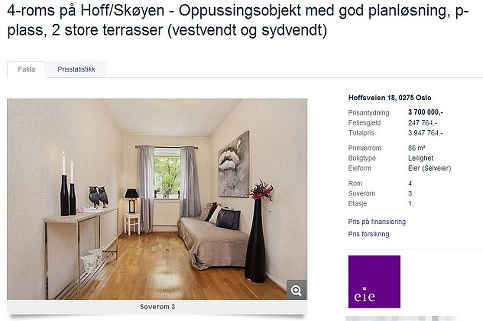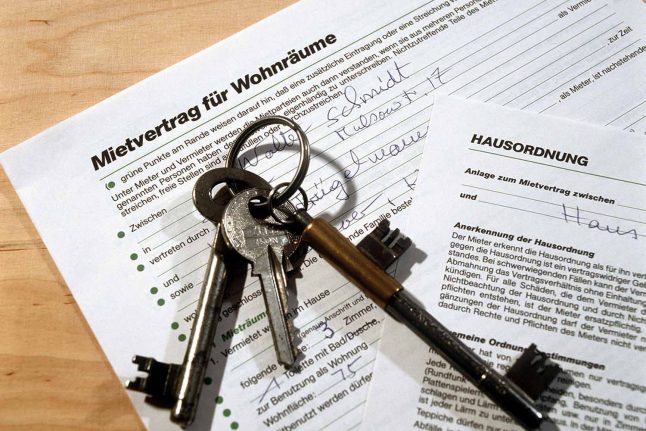BREIVIK
Breivik’s flat sells for knock-down price
An unnamed man has snapped up the Oslo apartment where far-right terrorist Anders Breivik planned his twin attacks at a bargain price.
Published: 22 August 2013 20:59 CEST

Wenche Behring Breivik's apartment - Eie
The the property went for about a third less than similarly sized apartments in the area, something the real estate agent managing the sale, Marie Mindresunde Moen at Eie real estate told TV2 was prepared for.
"The apartment's history influenced the price, which was not unexpected," Marie Mindresunde Moen at Eie real estate told TV2.
The four bedroom apartment in Skoyen was put up for sale in June, three months after Breivik's mother, Wenche Behring Breivik died of cancer.
Located in Skøyen, a quiet well-to-do suburb in the west of Oslo, it has a parking space, two large terraces, and windows on three sides.
It was put up for sale with an asking price of 3.7 million Norwegian kroner, and sold for just 3.05 million. But similarly sized apartments in the area sell for as much as 4.2 million kroner.
"It's a bit strange to think that Anders Behring Breivik has lived here," the 43-year-old man who bought the flat told TV2.
Breivik has renounced his inheritance from his mother, meaning it is his sister, who lives in the US, who has received the proceeds of the sale.
Breivik's lawyer Tord Jordet has speculated that Breivik did not take his inheritance in order to prevent the money going to the state, which he feared would use it to compensate his victims.
Url copied to clipboard!




 Please whitelist us to continue reading.
Please whitelist us to continue reading.
Member comments